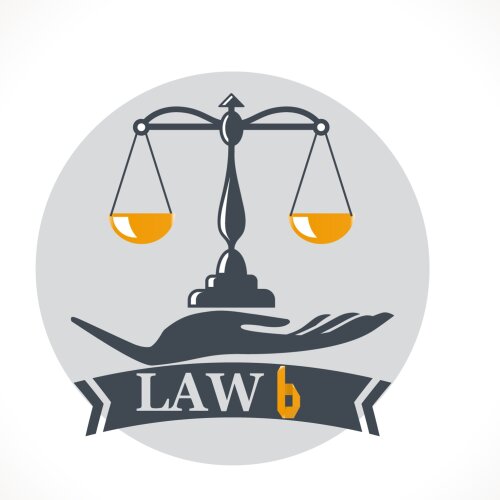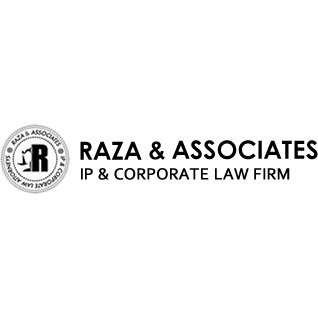Best Financial Services Regulation Lawyers in Pakistan
Share your needs with us, get contacted by law firms.
Free. Takes 2 min.
Or refine your search by selecting a city:
List of the best lawyers in Pakistan
About Financial Services Regulation Law in Pakistan
Financial Services Regulation in Pakistan comprises a set of legal frameworks designed to govern the financial sector, ensuring stability, transparency, and consumer protection. The financial system in Pakistan is regulated by multiple authorities, with the State Bank of Pakistan (SBP) and the Securities and Exchange Commission of Pakistan (SECP) playing pivotal roles. These authorities oversee activities in banking, capital markets, insurance, and non-banking financial companies, implementing laws and guidelines that uphold the integrity and efficiency of financial markets.
Why You May Need a Lawyer
Engaging a lawyer with expertise in Financial Services Regulation can be crucial under several circumstances:
- Compliance with Regulatory Requirements: Businesses and financial institutions need to adhere to numerous regulations concerning financial services. An experienced lawyer can help ensure compliance with local and international standards, thus avoiding hefty fines or penalties.
- Dispute Resolution: Legal disputes may arise between financial institutions and their clients or other entities. A lawyer can assist in navigating these disputes, whether through negotiation, mediation, or litigation.
- License and Authorization: Financial services providers often need appropriate licenses or authorization from regulatory bodies. Legal assistance is beneficial to navigate the complexities of applications and approvals.
- Drafting and Reviewing Contracts: Financial transactions often involve complex agreements. A lawyer can draft or review contracts to safeguard interests and ensure legal soundness.
- Risk Management: Lawyers can advise on measures to mitigate risks associated with financial operations, assessing potential legal implications of corporate strategies.
Local Laws Overview
Key aspects of local laws relevant to Financial Services Regulation in Pakistan include:
- The Banking Companies Ordinance, 1962, which governs the operations and regulations of banking companies.
- The Securities Act, 2015, which regulates the capital market and protects investors by ensuring transparent, fair, and efficient securities markets.
- The Insurance Ordinance, 2000, setting out the basic supervisory and regulatory framework for the insurance sector.
- The Non-Banking Finance Companies and Notified Entities Regulations, 2008, regulating non-banking financial services including leasing, venture capital, and asset management.
- The Anti-Money Laundering Act, 2010, designed to combat money laundering activities and ensure that financial institutions maintain effective measures for identifying and reporting suspicious transactions.
Frequently Asked Questions
What is the role of the State Bank of Pakistan in financial regulation?
The State Bank of Pakistan (SBP) is the central bank, responsible for regulating liquidity, ensuring stability of the banking system, and implementing monetary policy.
How does the SECP differ from the SBP?
The Securities and Exchange Commission of Pakistan (SECP) regulates the capital market, non-banking financial companies, and the insurance sector, whereas the SBP primarily oversees banking institutions.
What are the licensing requirements for financial institutions in Pakistan?
Financial institutions must secure licenses from relevant regulatory authorities like the SBP or SECP, complying with prescribed guidelines and meeting capital adequacy requirements.
How can I ensure compliance with anti-money laundering regulations?
Implement stringent risk assessment procedures, maintain comprehensive records, and report suspicious transactions to the Financial Monitoring Unit (FMU) as required by law.
What should I do if I suspect financial fraud?
Immediately report the suspicion to the relevant financial institution and law enforcement authorities, and seek legal counsel to understand your rights and options.
Are there consumer protection laws for financial services?
Yes, consumer protection laws focus on ensuring transparency in financial transactions, fair practices, and redress mechanisms for grievances.
What are the consequences of non-compliance with financial regulations?
Consequences can include hefty fines, sanctions, revocation of licenses, and reputational damage, depending on the severity of non-compliance.
Can foreign banks operate in Pakistan?
Yes, foreign banks can operate in Pakistan, subject to obtaining necessary licenses and adhering to local regulatory frameworks established by the SBP.
What is the process for dispute resolution in financial services?
Disputes can be resolved through negotiation, mediation, and arbitration, or formal litigation if necessary, often starting with internal grievance mechanisms of financial institutions.
What is the role of compliance officers in financial institutions?
Compliance officers ensure that the institution adheres to laws and regulations, assess risk, monitor transactions, and implement corrective measures when necessary.
Additional Resources
The following resources and organizations can be helpful:
- State Bank of Pakistan (SBP): The central authority governing banking regulations.
- Securities and Exchange Commission of Pakistan (SECP): Regulates capital markets and corporate sector, including non-banking financial companies.
- Financial Monitoring Unit (FMU): Monitors and combats money laundering and financing of terrorism.
- Pakistan Banks’ Association (PBA): Provides guidelines and standards for banking practices in Pakistan.
- Consumer Protection Departments: Available within financial institutions and regulatory bodies, focusing on resolving consumer complaints.
Next Steps
If you need legal assistance in Financial Services Regulation, consider the following steps:
- Identify Your Needs: Clearly understand your requirements, whether it's compliance, dispute resolution, or risk management.
- Research Qualified Lawyers: Look for lawyers with experience in financial services regulation, checking their credentials and past case records.
- Schedule Consultations: Discuss your situation with multiple lawyers to find one who aligns with your needs and understands your industry.
- Prepare Documentation: Gather all necessary documentation and background information pertinent to your case or query.
- Engage a Professional: Formalize your agreement and maintain clear communication with your legal counsel for ongoing support.
Lawzana helps you find the best lawyers and law firms in Pakistan through a curated and pre-screened list of qualified legal professionals. Our platform offers rankings and detailed profiles of attorneys and law firms, allowing you to compare based on practice areas, including Financial Services Regulation, experience, and client feedback.
Each profile includes a description of the firm's areas of practice, client reviews, team members and partners, year of establishment, spoken languages, office locations, contact information, social media presence, and any published articles or resources. Most firms on our platform speak English and are experienced in both local and international legal matters.
Get a quote from top-rated law firms in Pakistan — quickly, securely, and without unnecessary hassle.
Disclaimer:
The information provided on this page is for general informational purposes only and does not constitute legal advice. While we strive to ensure the accuracy and relevance of the content, legal information may change over time, and interpretations of the law can vary. You should always consult with a qualified legal professional for advice specific to your situation.
We disclaim all liability for actions taken or not taken based on the content of this page. If you believe any information is incorrect or outdated, please contact us, and we will review and update it where appropriate.
Browse financial services regulation law firms by city in Pakistan
Refine your search by selecting a city.

















